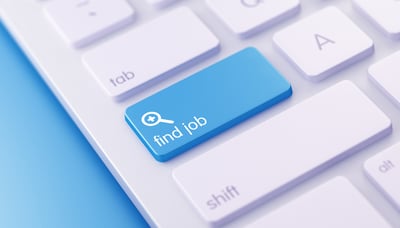November 12, 2018
 by Holly Hunt / November 12, 2018
by Holly Hunt / November 12, 2018

Public relations is not for the faint of heart.
It requires a dogged determination, tough skin, and boundless creativity. You must be a strategist, a writer, and a people person.
Public relations (PR) is a competitive, challenging career choice, but it is also extremely rewarding. As someone who has dabbled in PR campaigns, I can promise you it is exciting and worthwhile.
If you’re a student considering a PR major or a professional thinking about changing careers, I’ve got you covered. I talked to a wide range of successful PR professionals who were PR specialists once themselves. They offer tips and tricks, and what they wish they had known when they first entered the profession.
Before jumping into a career change, it’s important to thoroughly research what you’re getting into. The following PR professionals have been in the field for years and are flourishing. They’ve made mistakes so you don’t have to — well, everyone will make mistakes, but at least you don’t have to make the same ones!
I’ve divided up their feedback into five tips: build your network, understand journalists’ needs, follow-up, hone your writing skills, and don’t underestimate press releases.
Nicole Rohde, Senior International PR Executive at the English luxury brand Maxwell-Scott, urges you not to give up when the going gets tough, and responses seem few and far between.
“Chances are that as a PR professional you will be sending out hundreds of emails a week to journalists and other media partners. Don't get discouraged when you don't hear back at first. A lot of time the emails get lost in an overflowing inbox so it is important to always follow up on your email a few days later - either with another email or with a phone call. By reminding people about you and your email they all of the sudden take it more seriously and actually respond to you. About 50% of my media coverage comes from follow-ups, so it really works.”
PR is all about who you know. Building relationships with the media is of the utmost importance, so that when the time comes, you’ll have your contacts’ attention. This will help you land a media interview, a feature story or a future byline when you make a pitch.
Shelby Janner, Publicity Director at PR & Marketing agency Zilker Media, wishes she had known this trick early in her career.
“Read everything — all different types of news. If you work in a specific industry, start to read those trades and become as familiar as you can with them. Follow media members who you work with a lot on Twitter to get to know them better. When you are consistently reading what they write, you have a better idea of what they cover so you can adjust your pitches to them. You'll also get to know about other things they are interested in outside of what they may usually cover. I don't recommend @-replying them all the time — that would be annoying. But, once in a while try to very genuinely engage with them and let them know you really liked a story they recently wrote.”
|
TIP: Continue building your online network (and get your press release read!) with press release distribution software. |
Writing is not a skill everyone possesses, so don’t take it for granted. It can be what sets you apart from other public relations specialists trying to get coverage. It can also be incredibly useful in the instance of crisis communication.
Sherry Smith, Vice President of Media, Mobile & Marketing at international communications agency Clarity, can’t stress the importance of excellent writing enough.
“Competition is fierce now that there are fewer reporters around than there used to be. This is where being a good writer comes in. Once you’re in your agency, it’s incredibly valuable to be able to turn out creative pitches, eloquent speaking proposals, and clever bylines, and you’ll certainly be well rewarded for having a skill that not everyone has.”
Shannon Menard, a PR Coordinator at digital marketing agency Power Digital Marketing, expounds upon the issue and offers advice for those attending a college that doesn’t offer a public relations major.
“One piece of advice I would give aspiring PR professionals is to really hone in on your writing skills. A huge part of PR is written communication, whether it's email correspondence, drafting press releases or drafting creative pitch angles. You need to have strong writing skills if you want to succeed. If you know you're interested in going into PR but your prospective school doesn't offer a PR program, I would strongly suggest majoring in journalism or another writing-related field. PR firms and agencies put a huge value on this skillset, and it will help you stand out from other applicants when applying for jobs.”
As a public relations specialist, you are dependent upon journalists to tell your story. Because of this, it’s essential you provide what they need. Journalists operate under very tight deadlines, and if you don’t have what they want, they won’t give you the time of day (because they literally don’t have any!).
Here’s what Leona Long, the Public Information Officer at University of Alaska Fairbanks, suggests:
“Earned media is the most visible part of public relations. It's credibility that isn’t for sale. If a journalist asks you for help with a story, give them the information they need, regardless of whether it helps your client. Think of it like this: the tyranny of journalism falls into two categories — quality and quantity. Local reporters write two or more stories a day. That’s why I make it as easy as possible for them. My press releases can stand on their own as news stories and I provide images. Journalists at top-tier news outlets write three or four stories a month. Those stories must be well-researched and flawless. They must be compelling. Journalists want to tell the story you think about a week later. Find and pitch captivating stories because this is what enhances reporters’ job satisfaction.”
John Singh, Owner & Principal of independent PR firm J2 Communications, compares a PR professional who doesn’t know about the media to a surgeon who doesn’t know about anatomy. John has worked with high-profile entertainment clients such as Disney, Lucasfilm, and Fandango, and his work has resulted in coverage in Vanity Fair, The Wall Street Journal, Late Night with Conan O’Brien, and more.
“The single most important tip I would give to anyone starting out in PR is to understand how the media work. Whether you're going to be working with bloggers, newspaper reporters, broadcast producers or all of the above, it is imperative to understand how they work, what their unique pressures are, and how they receive and process information. PR is essentially a service industry: You are trying to get the right information out to the right people in the right way, and it is very important you know how to respond to their needs. Even a PR professional with the best client relationships in the world, who can write well and speak well, is going to struggle if they don't understand that they exist to help reporters, editors and producers — and being able to anticipate their needs is critical to being successful.”
|
SHARE YOUR PR INSIGHTS |
The easiest way for a journalist to pick up a story you are pitching is through a press release — if you know how to write a press release well.
Nicole Rohde chimes in on this as well:
“Press releases are the golden discipline. Not only does the text have to be on-point in order to arouse some interest, but press releases should also provide a nearly care-free experience for any interested journalists. Journalists are under enormous time constraints so you want to make it as easy and uncomplicated as possible for them to publish a story. That means always include a Dropbox link with images that go along with the story, and provide the company logo and any other asset that will help a media partner to publish a story immediately. Provide several quotes and angles in the press release so journalists have a choice in what direction they want to go for a potential article.”
If you’re new to the public relations industry, you’re probably new to the software that comes along with it. Check out the best public relations software so you’re on top of the game.
Holly is the former Director of Content Marketing at G2. An avid reader and writer, Holly graduated from the University of Missouri with a dual major in Journalism and English. She firmly believes in the power of content and is constantly seeking ways to better engage and delight readers.
What do you want to be when you grow up?
 by Deirdre O'Donoghue
by Deirdre O'Donoghue
Congratulations! You earned your degree in public relations.
 by Deirdre O'Donoghue
by Deirdre O'Donoghue
Where are people getting their news?
 by Deirdre O'Donoghue
by Deirdre O'Donoghue
What do you want to be when you grow up?
 by Deirdre O'Donoghue
by Deirdre O'Donoghue
Congratulations! You earned your degree in public relations.
 by Deirdre O'Donoghue
by Deirdre O'Donoghue


